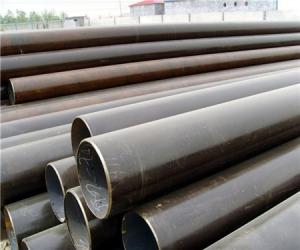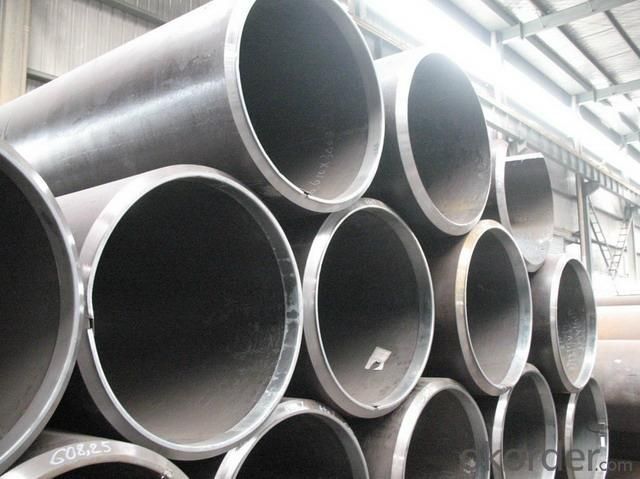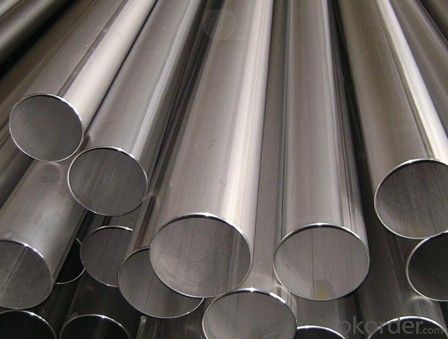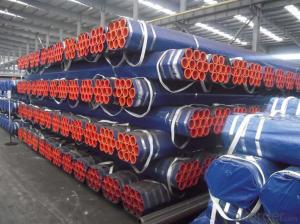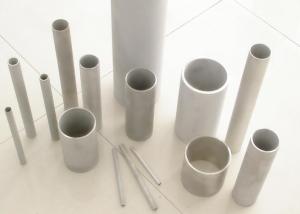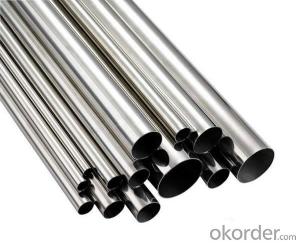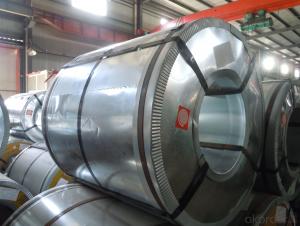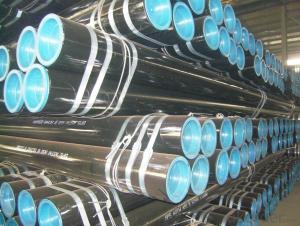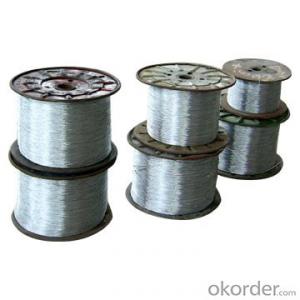Hot Dipped Galvanized Pipe manufacturer
- Loading Port:
- China Main Port
- Payment Terms:
- TT or LC
- Min Order Qty:
- 30 m.t.
- Supply Capability:
- 12000 m.t./month
OKorder Service Pledge
OKorder Financial Service
You Might Also Like
1、Structure of Seamless Pipe ASTM A106/53:
Standard: ASTM A53, BS1387, GB3091
● Application: To be used for conveying gas, water and
structural purpose
● Main Steel Tube Grade: A, B. Q195, Q215, Q235
2、Main Features of the Seamless Pipe ASTM A106/53:
• High manufacturing accuracy
• High strength
• Small inertia resistance
• Strong heat dissipation ability
• Good visual effect
• Reasonable price
3、Seamless Pipe ASTM A106/53 Specification:
Standard | GB, DIN, ASTM ASTM A106-2006, ASTM A53-2007 |
Grade | 10#-45#, 16Mn 10#, 20#, 45#, 16Mn |
Thickness | 8 - 33 mm |
Section Shape | Round |
Outer Diameter | 133 - 219 mm |
Place of Origin | Shandong, China (Mainland) |
Secondary Or Not | Non-secondary |
Application | Hydraulic Pipe |
Technique | Cold Drawn |
Certification | API |
Surface Treatment | factory state or painted black |
Special Pipe | API Pipe |
Alloy Or Not | Non-alloy |
Length | 5-12M |
Outer Diameter | 21.3-610mm |
Grade | 20#, 45#, Q345, API J55, API K55, API L80, API N80, API P110, A53B |
Standard | ASME, ASTM |
4、Packaging & Delivery
Packaging Details: | seaworthy package,bundles wrapped with strong steel strip |
Delivery Detail: | 15-30days after received 30%TT |
5、FAQ of Seamless Pipe ASTM A106/53:
①How is the quality of your products?
Our products are manufactured strictly according to national and internaional standard, and we take a test
on every pipe before delivered out. If you want see our quality certifications and all kinds of testing report, please just ask us for it.
Guaranteed: If products’ quality don’t accord to discription as we give or the promise before you place order, we promise 100% refund.
②How about price?
Yes, we are factory and be able to give you lowest price below market one, and we have a policy that “ for saving time and absolutely honest business attitude, we quote as lowest as possible for any customer, and discount can be given according to quantity”,if you like bargain and factory price is not low enough as you think, just don’t waste your time.Please trust the quotation we would give you, it is professional one.
③Why should you chose us?
Chose happens because of quality, then price, We can give you both.Additionally, we can also offer professional products inquiry, products knowledge train(for agents), smooth goods delivery, exellent customer solution proposals.Our service formula: good quality+good price+good service=customer’s trust
SGS test is available, customer inspection before shipping is welcome, third party inspection is no problem.
6、Seamless Pipe ASTM A106/53 Images:
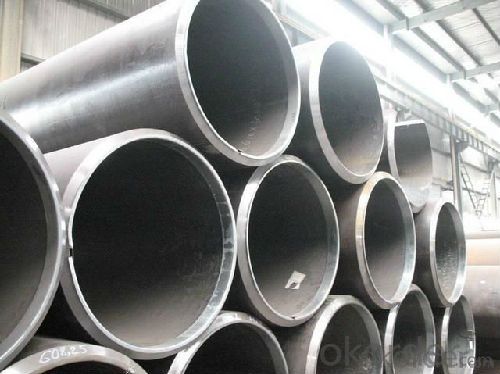
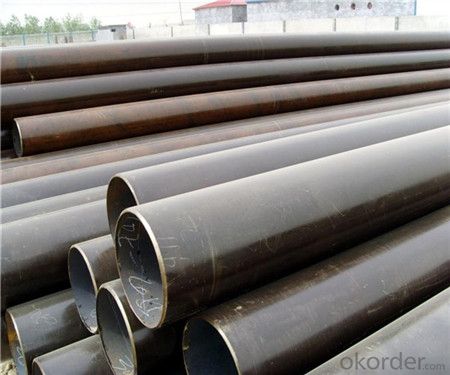
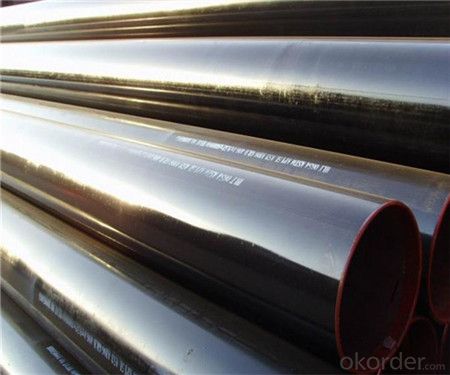
- Q: What are the different methods of pipe insulation for steel pipes?
- There are several methods of pipe insulation for steel pipes, including foam insulation, fiberglass insulation, mineral wool insulation, and reflective insulation. Foam insulation is a popular choice as it provides excellent thermal insulation and is easy to install. Fiberglass insulation is another common option that offers good thermal and acoustic insulation properties. Mineral wool insulation is known for its fire resistance and is often used in high-temperature applications. Reflective insulation, on the other hand, utilizes a reflective surface to reduce heat transfer and is commonly used in hot climates.
- Q: What are the different methods of joining steel pipes for steam applications?
- There are several methods of joining steel pipes for steam applications, including threading, welding, and using mechanical couplings. Threading involves screwing the pipes together using male and female threads, which provides a secure connection. Welding involves fusing the ends of the pipes together using heat, creating a strong and permanent bond. Mechanical couplings use a mechanical device to join the pipes, such as a clamp or compression fitting, which allows for easy disassembly and reassembly if needed. Each method has its advantages and is chosen based on the specific requirements of the steam application.
- Q: Can steel pipes withstand high temperatures?
- Yes, steel pipes can withstand high temperatures. Steel is known for its excellent thermal conductivity and high melting point, making it suitable for various applications that involve exposure to elevated temperatures.
- Q: Can steel pipes be used for aboveground applications?
- Yes, steel pipes can be used for aboveground applications. They are commonly used in various aboveground structures such as buildings, bridges, and pipelines due to their strength, durability, and resistance to environmental conditions.
- Q: How are steel pipes measured and categorized?
- Typically, steel pipes are measured and categorized by their outer diameter, wall thickness, and length. The outer diameter represents the width of the pipe when viewed from the side, while the wall thickness refers to how thick the pipe's walls are. These measurements are usually given in millimeters or inches. Categorizing steel pipes is done based on their purpose and specifications. The most common way to categorize them is by their pressure rating, which determines their ability to handle different levels of internal or external pressure. Pipes are divided into different pressure classes, like Schedule 40, Schedule 80, and Schedule 160, to name a few. The higher the pressure class, the thicker and stronger the pipe is. Steel pipes can also be categorized according to their manufacturing process and material composition. For instance, seamless steel pipes are created by piercing a solid steel bar to create a hollow tube, while welded steel pipes are made by rolling and welding a flat steel sheet or strip into a cylindrical shape. Additionally, steel pipes can be classified based on their material composition, such as carbon steel pipes, stainless steel pipes, or alloy steel pipes. Another way to categorize steel pipes is by their end connections or fittings. Common types of pipe ends include threaded ends, which are suitable for attaching fittings by screwing them onto the pipe, and plain ends, which are typically used for welding or flanging connections. In conclusion, the measurement and categorization of steel pipes are crucial for ensuring the proper selection and usage of these pipes in various industries, including construction, oil and gas, plumbing, and manufacturing.
- Q: How are steel pipes used in the manufacturing of food processing equipment?
- Steel pipes are commonly used in the manufacturing of food processing equipment due to their durability, strength, and resistance to corrosion. These pipes are used to create a network of channels and conveyors, allowing for the efficient transportation of various food products during the manufacturing process. Additionally, steel pipes are used for the supply of water, steam, and other fluids required for food processing, ensuring a hygienic and safe production environment.
- Q: Seamless steel pipe and welded pipe what is the difference?
- Seamless steel pipe is made of solid round tubes and perforated without gaps. The welded pipe is made of steel or strip after welding and has a slit. Generally seamless pipe can be greater pressure on the city.
- Q: Water, gas, steel pipes, thick steel wire means?
- Thick steel wire pipe is the same wire pipe, but the wire pipe is thin tube, easy to damage, so with thick as the outer diameter can protect the wire tube, so called thick steel wire pipe.
- Q: How are steel pipes used in the shipbuilding industry?
- Steel pipes are used in the shipbuilding industry for various purposes including the construction of the ship's hull, piping systems, and structural components. They are utilized for their strength, durability, and corrosion resistance, playing a crucial role in ensuring the structural integrity, fluid transportation, and overall safety of the ships.
- Q: Are steel pipes resistant to UV degradation?
- No, steel pipes are not resistant to UV degradation.
Send your message to us
Hot Dipped Galvanized Pipe manufacturer
- Loading Port:
- China Main Port
- Payment Terms:
- TT or LC
- Min Order Qty:
- 30 m.t.
- Supply Capability:
- 12000 m.t./month
OKorder Service Pledge
OKorder Financial Service
Similar products
Hot products
Hot Searches
Related keywords
